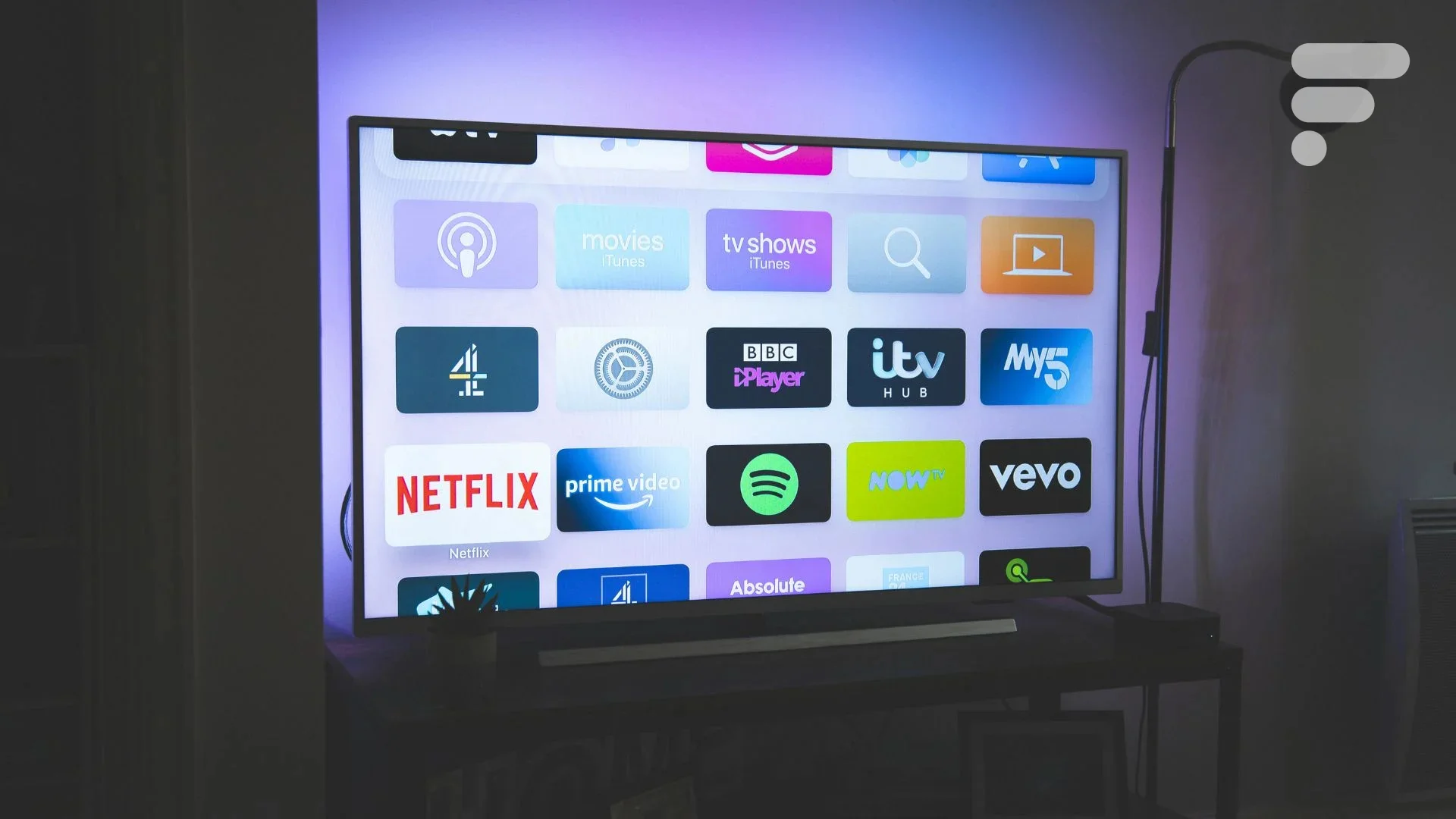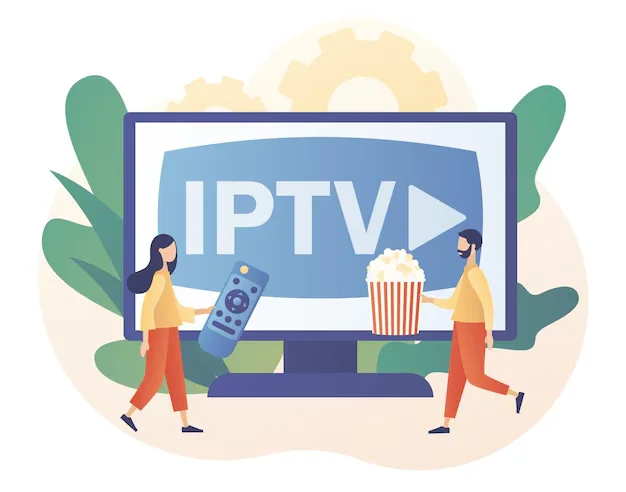The Ultimate IPTV Comparison Guide: Finding Your Perfect Streaming Solution
The world of television has undergone a dramatic transformation in recent years. Traditional cable and satellite services are increasingly giving way to Internet Protocol Television (IPTV) solutions that offer greater flexibility, more content options, and often significant cost savings. But with so many IPTV providers flooding the market, how do you determine which service best meets your streaming needs?
In this comprehensive IPTV comparison guide, we’ll explore everything you need to know about selecting the right IPTV service. From understanding basic features to evaluating pricing structures, connection options, and compatibility with your favorite devices, we’ll help you navigate this complex landscape with confidence.
Are you tired of overpaying for channels you never watch? Do you want access to international programming that’s unavailable through conventional providers? Perhaps you’re simply looking for a more affordable alternative to your current television service? Whatever your motivation, this guide will equip you with the knowledge to make an informed decision.

Let’s dive into the world of IPTV and discover how these innovative streaming solutions can transform your entertainment experience without breaking the bank.
Understanding IPTV: The Basics You Need to Know
What exactly is IPTV and how does it differ from traditional television services? IPTV stands for Internet Protocol Television, a technology that delivers television content over Internet Protocol (IP) networks. Unlike conventional broadcast, cable, or satellite TV, IPTV uses your internet connection to stream content directly to your devices.
This fundamental difference creates several advantages. First, IPTV eliminates the need for dedicated infrastructure like satellite dishes or cable lines running to your home. Instead, it leverages your existing internet connection. Second, it enables on-demand viewing alongside live programming, giving you greater control over what you watch and when you watch it.
How does IPTV work? At its core, IPTV converts traditional television signals into data packets that travel across the internet to your device. When you select a channel or program, your IPTV service sends those data packets to your device, which reassembles them into viewable content. This process happens almost instantaneously, creating a seamless viewing experience comparable to traditional television.
There are three primary types of IPTV content: Video on Demand (VOD), which allows you to select and watch content whenever you choose; Time-Shifted Media, which lets you replay live broadcasts that you might have missed; and Live IPTV, which streams television programs in real-time, just like conventional TV.
Is IPTV legal? This is perhaps the most common question newcomers ask. The answer depends entirely on the provider and content. Many legitimate IPTV services operate with proper licensing agreements for the content they distribute. However, some services may operate in legal gray areas by redistributing content without proper authorization. When selecting an IPTV provider, it’s important to research their legitimacy and ensure they have the necessary rights to distribute their content.

To use IPTV, you’ll need a few basic components: a reliable internet connection (most providers recommend at least 25 Mbps for HD streaming), a compatible device (such as a smart TV, streaming box, computer, or mobile device), and a subscription to an IPTV service. Many providers offer dedicated apps that streamline the setup process, such as IPTV Smarters Pro, which has become one of the most popular applications for accessing IPTV content.
Understanding these basics provides the foundation you need to compare different IPTV services effectively. With this knowledge in hand, you’re ready to explore the specific features that distinguish one provider from another.
Key Features to Compare When Choosing an IPTV Service
When evaluating different IPTV providers, several key features should influence your decision. Let’s examine these critical factors to help you identify which service will best meet your specific needs.
Channel selection stands as perhaps the most important consideration for most users. How many channels does the service offer? Do they provide the specific networks you regularly watch? Many IPTV services boast thousands of channels, but raw numbers don’t tell the whole story. A service with 500 channels that include all your favorites may be preferable to one with 5,000 channels you’ll never watch. Look for providers that offer detailed channel lists, allowing you to verify they carry your must-have networks before subscribing.
Content quality varies significantly between providers. Does the service offer HD or 4K streaming options? Higher resolution requires more bandwidth but delivers a superior viewing experience. Some budget providers may offer primarily standard definition content to keep costs down. Consider your preferences and the capabilities of your viewing devices when evaluating picture quality.
What about reliability and uptime? Nothing ruins the viewing experience faster than constant buffering or service outages. Research provider reviews specifically addressing service stability. Many quality providers maintain redundant servers and infrastructure to ensure consistent performance, even during peak viewing hours.
User interface and experience significantly impact your daily interaction with the service. Is the provider’s app intuitive and easy to navigate? Does it offer features like favorites lists, search functionality, and program guides? IPTV Smarters Pro APK is widely regarded for its user-friendly interface, making it a popular choice for accessing various IPTV services.

Multi-device compatibility should be carefully considered. Can you watch on your preferred devices? Most quality providers support viewing across smart TVs, streaming devices like Fire TV Stick, computers, tablets, and smartphones. If you plan to watch on multiple device types, ensure the service offers compatible apps for each platform.
DVR and recording capabilities vary widely between services. Some providers include cloud DVR functionality, allowing you to record live programs for later viewing. Others may limit or exclude this feature entirely. If time-shifting content is important to you, prioritize providers offering robust recording options.
Consider whether the service offers multiple simultaneous connections. Can family members watch different channels on separate devices simultaneously? Multi-connection IPTV services allow multiple streams under a single subscription, eliminating the need for separate accounts for each household member.
Finally, evaluate customer support options. Does the provider offer responsive assistance when issues arise? Look for services with multiple support channels, such as live chat, email, and knowledge bases. Quick, helpful responses to technical problems can make all the difference in your overall satisfaction.
By systematically comparing these features across different providers, you’ll develop a clearer picture of which service aligns best with your specific viewing habits and preferences.
IPTV Pricing Models: Understanding What You’re Paying For
IPTV services employ various pricing structures, and understanding these models helps ensure you’re getting the best value for your money. Let’s explore the common pricing approaches and what factors influence the cost of IPTV subscriptions.
Most IPTV providers offer tiered subscription options based on duration. Typically, you’ll find monthly, quarterly, semi-annual, and annual plans. The longer the commitment, the lower the monthly equivalent cost tends to be. For example, an IPTV 1-year subscription often represents significant savings compared to paying month-to-month, sometimes reducing the effective monthly cost by 30-50%.
What’s the typical price range for quality IPTV services? While rates vary widely, most reputable providers fall within predictable ranges. Basic monthly plans typically start between $8-15 per month, while premium services with extensive channel lineups and additional features may range from $15-25 monthly. When evaluating IPTV prices, be wary of services that fall significantly below these ranges, as they may compromise on quality or reliability.
Many providers differentiate their packages based on features rather than just duration. Common tier distinctions include the number of channels offered, video quality (SD vs. HD vs. 4K), the number of simultaneous connections allowed, and whether premium add-ons like sports packages are included. When comparing packages, create a checklist of your must-have features to determine which tier best meets your needs without paying for unnecessary extras.

The number of concurrent streams significantly impacts pricing. Basic plans typically allow 1-2 simultaneous connections, while premium options may support 5 or more devices watching different content simultaneously. If multiple household members will be watching different channels at the same time, investing in a multi-connection plan is more economical than purchasing separate subscriptions.
Are there hidden costs to watch for? Some providers advertise attractive base rates but charge extra for features you might assume are included. Common add-ons that may incur additional fees include access to premium channels, sports packages, adult content, video-on-demand libraries, and enhanced DVR functionality. Always read the complete package details to understand exactly what’s included before subscribing.
Payment methods and security are also important considerations. Reputable providers offer secure payment options, including credit cards, PayPal, and sometimes cryptocurrency. Be cautious of services that only accept non-reversible payment methods like cryptocurrency or gift cards with no alternative options, as this can be a red flag.
Many providers offer free trials or money-back guarantee periods, allowing you to test the service before committing to a longer subscription. These trial periods provide an excellent opportunity to evaluate performance, channel selection, and compatibility with your devices without financial risk.
When comparing IPTV subscription pricing, look beyond the headline monthly rate. Consider the effective cost based on your expected usage pattern and required features. A slightly more expensive service that perfectly matches your viewing habits may provide better value than a cheaper option that falls short in key areas.
Device Compatibility and Setup: Getting Your IPTV Service Running
One of IPTV’s greatest advantages is its flexibility across various devices and platforms. However, compatibility varies between providers, and understanding setup requirements ensures a smooth experience from day one. Let’s explore the device ecosystem and setup process for IPTV services.
Which devices typically support IPTV? Most services work across a wide range of hardware, including smart TVs (particularly Android TV models), streaming devices (Amazon Fire TV, Roku, Apple TV), computers (Windows, Mac, Linux), mobile devices (Android and iOS), and gaming consoles. Before subscribing, verify that your preferred provider supports your specific viewing devices.
Amazon’s Fire TV Stick has emerged as one of the most popular platforms for IPTV due to its affordability and flexibility. Setting up IPTV on these devices typically involves installing apps like IPTV Smarters on Firestick. The process usually requires downloading the app (either from the official app store or through sideloading), launching it, and then entering your provider’s credentials or connection details.

For users new to the process, many providers offer detailed setup guides for popular devices. These guides typically walk you through the installation process step-by-step, often with screenshots or videos to simplify the experience. For example, installing IPTV Smarters Pro on Firestick might involve using the Downloader app to sideload the application if it’s not available in the Amazon App Store.
What about smart TVs? Many modern smart TVs, especially those running Android TV, can install IPTV apps directly. Samsung’s Tizen and LG’s WebOS platforms may have more limited options, often requiring the use of built-in web browsers or screen mirroring from another device. Always check your specific TV model’s compatibility before subscribing.
Mobile viewing has become increasingly important for many users. Most quality providers offer dedicated apps for Android and iOS devices, allowing you to watch your content on smartphones and tablets. These apps typically provide the same functionality as their TV counterparts, including live channels, program guides, and on-demand content.
What internet speed do you need for optimal performance? For standard definition content, a stable connection of at least 5 Mbps is typically sufficient. HD content generally requires 10-15 Mbps, while 4K streaming may demand 25 Mbps or more. Remember that these requirements multiply when streaming to multiple devices simultaneously.
Many users prefer to access their IPTV service through specialized applications rather than the provider’s native app. Popular options include IPTV Smarters Pro, Perfect Player, TiviMate, and GSE Smart IPTV. These apps often offer enhanced features and more customizable interfaces compared to provider-specific applications.
If you encounter setup difficulties, most providers offer technical support to help resolve issues. This might include live chat support, email assistance, or comprehensive knowledge bases with troubleshooting guides. Before contacting support, check whether your provider has published setup instructions specific to your device, as many common issues have documented solutions.
By understanding device compatibility and setup requirements beforehand, you can ensure a smoother transition to your new IPTV service and avoid potential frustration during the initial configuration process.
Content Quality and Reliability: Evaluating Performance Factors
When comparing IPTV services, content quality and reliability often separate premium providers from subpar offerings. Let’s examine the key performance factors that impact your viewing experience and how to evaluate them effectively.
Stream quality varies significantly between providers. Most services offer standard definition (SD) and high definition (HD) channels, typically at 720p or 1080p resolution. Premium providers increasingly offer 4K content for compatible devices, though this remains less common than HD options. When evaluating picture quality, consider not just the maximum resolution advertised, but the consistency of that quality across different channels and viewing times.
How can you assess stream stability before committing to a service? Many providers offer free trials or money-back guarantee periods specifically for this purpose. During your trial, test the service at different times of day, particularly during peak evening hours when server load is highest. Watch for buffering issues, picture quality fluctuations, or channel loading failures that might indicate infrastructure limitations.

Server location and capacity significantly impact performance. Services with servers geographically closer to your location typically deliver better performance due to reduced latency. Similarly, providers with robust server infrastructure can better handle peak viewing periods without degradation. Some premium services maintain redundant server networks across multiple regions to ensure consistent performance regardless of user location or time of day.
What about content refresh rates? Live sports and news events highlight the importance of minimal broadcast delay. Quality providers typically maintain delays of just 30-60 seconds compared to traditional cable broadcasts, while lesser services might lag several minutes behind. This difference becomes particularly noticeable during live sporting events when social media or notifications might spoil outcomes before you see them unfold.
Channel stability is another critical factor. Are channels consistently available, or do you frequently encounter “channel unavailable” messages? Premium providers maintain reliable content sources and quickly address outages when they occur. During your evaluation period, check whether the same channels remain accessible day after day, particularly for specialized or international content.
Audio quality sometimes receives less attention than video, but it’s equally important to the overall experience. Quality services maintain audio streams that are properly synchronized with video, free from distortion, and available in stereo or surround formats where appropriate. During testing, pay attention to lip-sync issues, audio dropouts, or volume inconsistencies between channels.
EPG (Electronic Program Guide) accuracy and completeness enhances usability significantly. A comprehensive, up-to-date program guide helps you navigate content and plan viewing. Test whether the provider’s EPG accurately reflects current and upcoming programming, includes detailed show information, and extends several days into the future.
Customer reviews and forums can provide valuable insights into long-term reliability. While no service is perfect, patterns of complaints about specific issues may reveal systemic problems. Look for reviews addressing performance over extended periods rather than just initial impressions. Customer service responsiveness when issues arise is equally important – even the best technical infrastructure occasionally experiences problems.
By thoroughly evaluating these performance factors, you can identify providers that deliver consistent, high-quality viewing experiences rather than those that impress initially but disappoint over time.
Legal Considerations and Service Legitimacy
The legal landscape surrounding IPTV services can be complex and varies by region. Understanding the legal considerations helps you make informed choices and avoid potential risks associated with questionable services. Let’s explore the key legal aspects of IPTV services.
Is IPTV legal? This common question has a nuanced answer. IPTV as a technology is perfectly legal – it’s simply a method of delivering television content over internet protocol networks. Many legitimate services use IPTV technology, including major platforms like YouTube TV, Hulu Live, and network-specific apps. However, services that retransmit content without proper licensing agreements may operate in legally questionable territory.
How can you identify legitimate IPTV services? Several indicators help distinguish authorized providers from potentially problematic ones. Legitimate services typically maintain professional websites with clear terms of service, privacy policies, and business information. They generally offer transparent pricing structures rather than unusually low rates that seem too good to be true. And importantly, they secure proper licensing agreements for the content they distribute.

Content licensing forms the core legal distinction between services. Authorized providers negotiate rights with content owners or distributors to legally retransmit their programming. These licensing agreements explain why legitimate services typically charge rates comparable to traditional cable packages – they’re paying for the rights to distribute that content. Services offering thousands of premium channels for a fraction of typical market rates may be operating without proper licensing.
The legal consequences for using unauthorized services vary significantly by jurisdiction. In some regions, authorities focus enforcement efforts on service operators rather than end users. However, in other areas, subscribers to unlicensed services may face potential risks, including warning letters, account termination by internet service providers, or in rare cases, more serious legal consequences.
Geographic restrictions and content blocking represent another legal consideration. Many legitimate services implement geo-blocking to comply with territorial licensing agreements. Using VPNs or other technologies to circumvent these restrictions may violate terms of service and, in some jurisdictions, applicable laws. Understanding the geographic limitations of your chosen service helps avoid unexpected access issues.
Terms of service agreements warrant careful review before subscribing to any IPTV provider. These documents outline acceptable use policies, cancellation terms, refund policies, and other important contractual details. Legitimate services typically provide clear, accessible terms rather than vague or difficult-to-locate policies.
Privacy considerations should also factor into your evaluation. How does the provider handle your personal and payment information? Do they maintain clear privacy policies? Services that collect excessive personal data or lack transparent privacy practices may present additional risks beyond content legitimacy concerns.
The IPTV market continues to evolve alongside changing legal frameworks. Services that operate legitimately today may face new regulations in the future. Staying informed about developments in digital media law in your region helps you adapt to this changing landscape and make appropriate adjustments to your streaming choices.
By prioritizing legally authorized services, you not only minimize potential risks but also support the content creation ecosystem that produces the programming you enjoy. This approach promotes sustainable, high-quality content production while providing peace of mind about your viewing choices.
IPTV vs. Traditional TV Services: Making the Right Choice
The decision between IPTV and traditional television services involves weighing various factors beyond just cost. Understanding the fundamental differences helps determine which option best suits your viewing habits and preferences. Let’s compare these technologies across key dimensions.
Cost structures differ significantly between IPTV and traditional services. Cable and satellite providers typically require equipment rental fees, installation charges, and long-term contracts with early termination penalties. These packages often include channels you never watch, effectively making you pay for unwanted content. In contrast, many IPTV services offer more flexible pricing with no equipment fees, shorter commitment options, and more targeted channel packages. For budget-conscious viewers, affordable IPTV services can represent significant savings compared to traditional options.
Content flexibility represents a major advantage for IPTV services. While cable packages lock you into predefined channel bundles, IPTV often allows more customization. Many providers offer specialized packages focused on specific content categories like sports, international programming, or entertainment. This targeted approach lets you pay for what you actually watch rather than subsidizing unwanted channels.

Device compatibility presents another clear distinction. Traditional services typically require proprietary equipment like cable boxes or satellite receivers, limiting viewing to television sets connected to these devices. IPTV services function across multiple platforms, including smart TVs, streaming devices, computers, tablets, and smartphones. This flexibility allows you to watch content wherever you are, not just in rooms with dedicated equipment.
What about picture quality? Modern cable and satellite services generally offer good HD quality, with some providing 4K options for select content. Quality IPTV services can match or exceed this standard, though performance depends more heavily on your internet connection. With sufficient bandwidth, IPTV can deliver excellent picture quality across all supported devices.
Reliability comparisons yield mixed results. Traditional services typically maintain consistent performance regardless of weather (for cable) or internet conditions. They’re less susceptible to buffering or quality fluctuations during peak usage times. However, satellite services may experience weather-related disruptions during severe storms. IPTV reliability depends primarily on your internet connection stability and the provider’s server infrastructure. With a robust internet connection and a quality provider, IPTV can deliver comparable reliability to traditional options.
On-demand content and time-shifting capabilities have historically favored IPTV. While traditional providers have improved their on-demand offerings, IPTV services typically provide more extensive libraries and flexible viewing options. Many IPTV packages include catch-up features that let you watch recently aired programs without needing to record them in advance.
Contract flexibility strongly favors IPTV services. Traditional providers often require 12-24 month commitments with substantial early termination fees. In contrast, many IPTV services offer month-to-month options alongside discounted longer-term plans, allowing you to adjust or cancel service without significant penalties.
International content availability represents a significant advantage for IPTV. Traditional providers typically offer limited international programming at premium prices. IPTV services frequently include extensive international channel selections from multiple regions at no additional cost, making them particularly attractive for multilingual households or expatriates seeking content from their home countries.
When deciding between these options, consider your specific viewing habits, technical comfort level, and budget constraints. Many households find that affordable IPTV solutions provide the ideal balance of content variety, flexibility, and cost-effectiveness compared to traditional alternatives.
Making Your Final Decision: How to Choose the Right IPTV Provider
After exploring the various aspects of IPTV services, it’s time to synthesize this information into a practical decision-making framework. Let’s walk through the process of selecting the provider that best matches your specific needs and preferences.
Begin by creating a personalized priority list. What matters most to you in an IPTV service? Is it channel selection, picture quality, reliability, multi-device support, or price? Ranking these factors helps focus your evaluation on what’s truly important for your viewing habits rather than being swayed by marketing claims about features you’ll rarely use.
Next, develop a shortlist of potential providers based on your research. Look for services that align with your priority list and have positive reviews from current users. Ideally, each candidate should offer a free trial or money-back guarantee period, allowing you to test performance before committing.
![]()
Take advantage of these trial periods to thoroughly evaluate each service. Test different types of content at various times of day, particularly during peak evening hours when server load is highest. Pay special attention to the channels you watch most frequently. Does the service deliver consistent quality for this content? Are program guides accurate? Does the interface make finding and accessing your preferred content intuitive?
Consider long-term value rather than just initial cost. A slightly more expensive service that perfectly matches your viewing habits may provide better value than a cheaper option that falls short in key areas. Similarly, annual subscriptions often offer significant discounts compared to monthly payments, but only represent good value if you’re confident in the service’s long-term performance.
Evaluate customer support responsiveness during your trial period. Submit a test question to gauge response time and helpfulness. Quality support becomes crucial when technical issues arise, and providers that invest in customer service typically maintain better overall service quality.
Research the provider’s stability and reputation. How long have they been operating? Do they regularly update their applications and channel offerings? Services with established track records are generally more reliable than newcomers, though some newer providers may offer innovative features that justify considering them despite their shorter history.
Consider compatibility with your existing devices and viewing habits. Does the service work well on all the devices you plan to use? If you frequently watch on mobile devices, how does the mobile experience compare to the TV interface? Are there limitations on simultaneous streams that might affect household viewing patterns?
Examine payment security and subscription management options. Reputable providers offer secure payment processing and transparent subscription management, including easy cancellation procedures. Be wary of services that make cancellation unnecessarily difficult or lack clear terms regarding automatic renewals.
Finally, trust your actual experience over marketing claims. During trial periods, evaluate whether the service delivers on its promises in real-world conditions. Pay attention to both strengths and limitations to determine whether the overall package meets your needs.
By following this systematic approach, you’ll identify the IPTV provider that offers the best combination of features, performance, and value for your specific situation. Whether you prioritize extensive channel selection, multi-device flexibility, or budget-friendly pricing, the right service will enhance your viewing experience while delivering the content you love.
Ready to explore your options? Start by checking out IPTV plans from various providers and take advantage of trial periods to experience the services firsthand. With the knowledge gained from this guide, you’re well-equipped to navigate the IPTV landscape and find your ideal streaming solution.